- November 15, 2024
- By Karen Shih ’09
Few professors would invite a student to draw all over their office wall. But environmental science and technology Associate Professor Dave Tilley knows a little freedom is the best way to spark the imagination.
He’s taken that approach in his own work as an ecological engineer, including creating plant-covered green walls and green roofs, inventing “living umbrellas” and harnessing the heat and water used for data centers for aquaculture or greenhouses.
Tilley has embraced those out-of-the-box ideas, especially later in his career, after initially feeling pigeonholed as an engineer starting out. “It’s taken me a long time to realize I’m more of a creative person.”
One glance inside his office, which overlooks the Animal Sciences Courtyard and is lit by sunlight filtered through dated glass blocks used throughout the building, and it’s clear this isn’t a cookie-cutter space. Is that a boat hanging from the ceiling? Festive lights strung across the room? Shelves hanging by red and black cords? Even the furniture is unique; he made some pieces and salvaged others since he moved there in 2006.
Tilley shares how his massive mural came to be, how an earthquake inspired him to build bookshelves and what he keeps around to remind him of his agricultural roots.
Chalk Mural
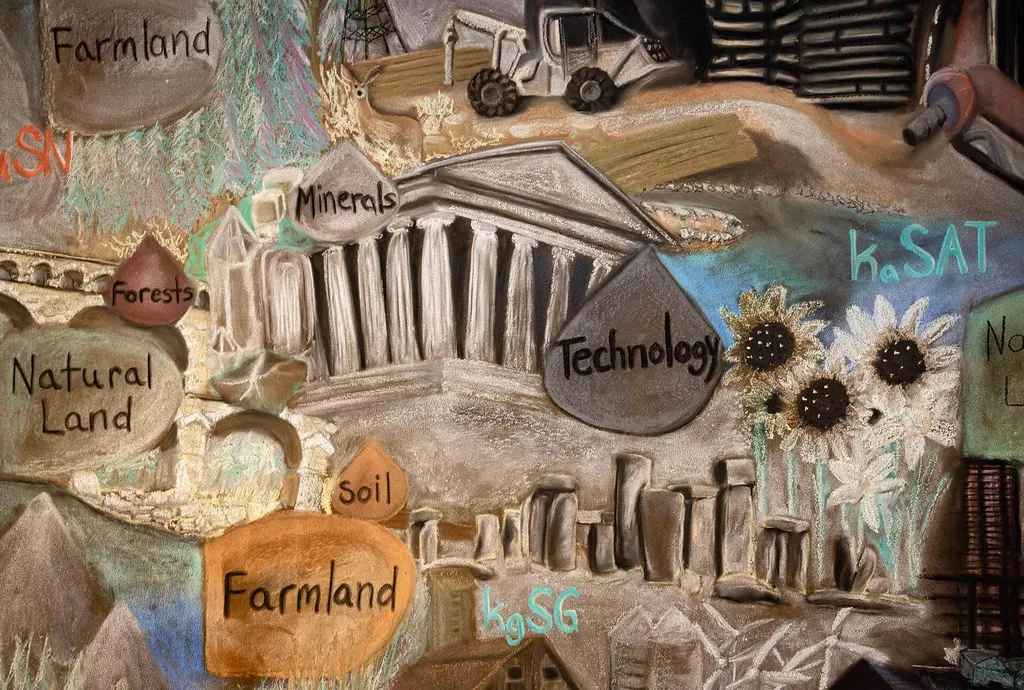
“How do we as humans fit in with nature? How has that changed over the cultural evolution?” Tilley said.
The full-wall mural in his office covers some of that ground. It traces early civilization and agriculture, featuring ancient Greek pillars and Roman aqueducts, then goes into the industrial and modern ages, with planes and computers. Energy systems language symbols—used frequently in his work—and equations are scattered throughout.
Kelly Boeckl ’12, an environmental science and policy major, drew it nearly 15 years ago after telling Tilley she had an interest in art. He’d just painted the wall brown, so he gave her free rein and she worked on it each Friday for a semester.
He never expected it would remain for so long—chalk can’t stand up to any sort of coating, he learned. (A drawing of a nuclear reactor has been quietly erased by condensation dripping down the wall.)
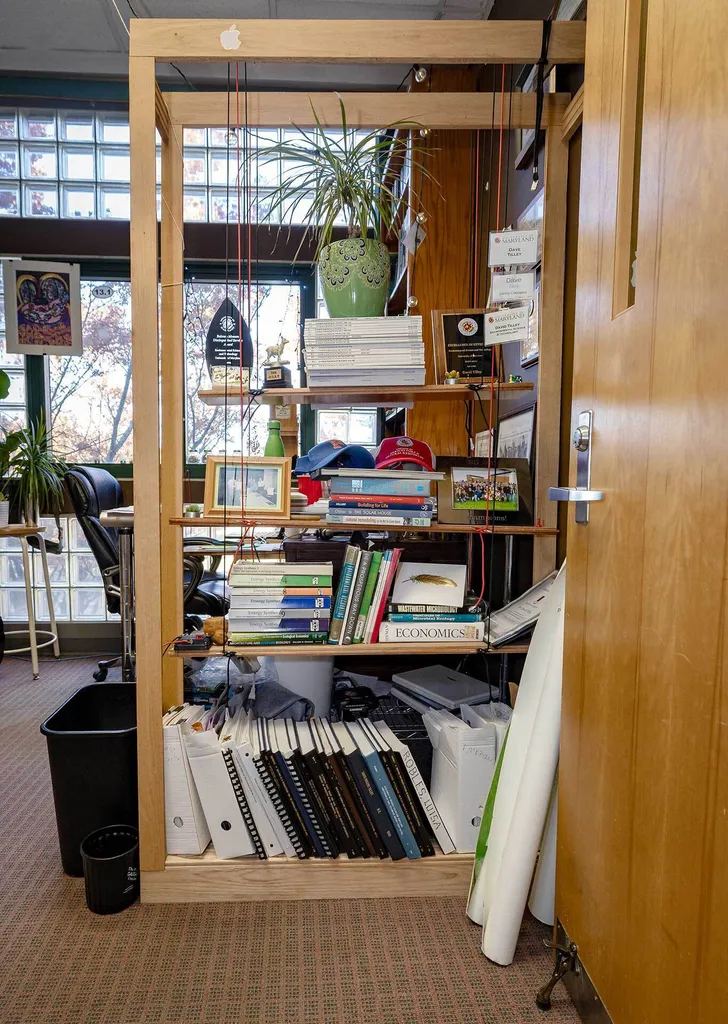
Swinging Bookshelf
Inspired by the 2011 earthquake that shook campus and the surrounding areas, Tilley built a bookshelf based on technology from Japan, which sits on a fault line.
Using reclaimed wood from Community Forklift in Hyattsville, he cobbled together the pieces to create a see-through but sturdy home for journals, photos of former advisers and the award-winning Solar Decathlon team he advised, and even some desiccated fruit he accidentally left behind during the pandemic.
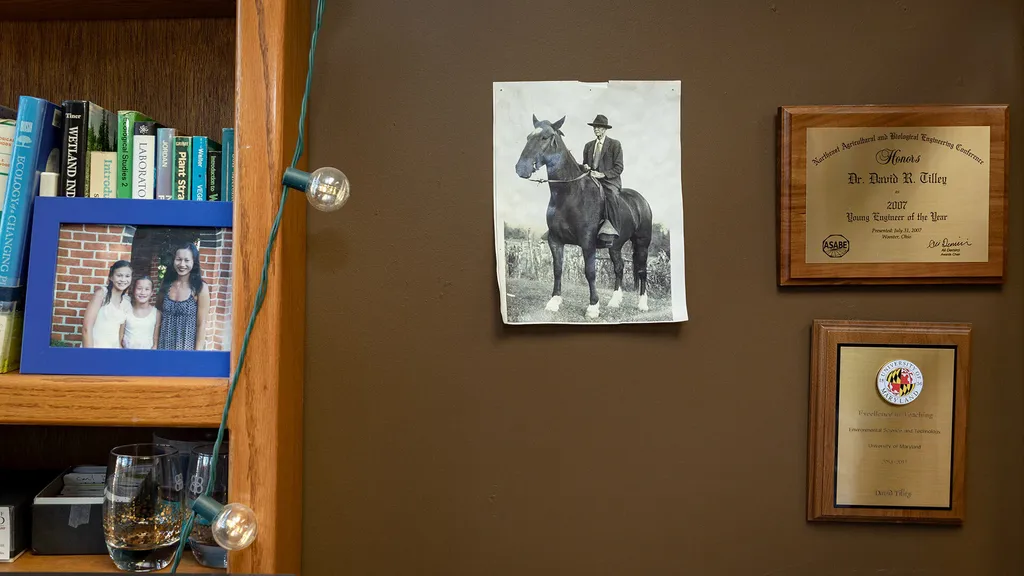
Great-grandpa John
In a nod to his agrarian heritage—he’s part of the College of Agriculture and Natural Resources, after all—Tilley keeps a photo of his great-grandfather John on his wall, astride one of the many horses he rehabilitated after retiring from his career as a North Carolina tobacco farmer.
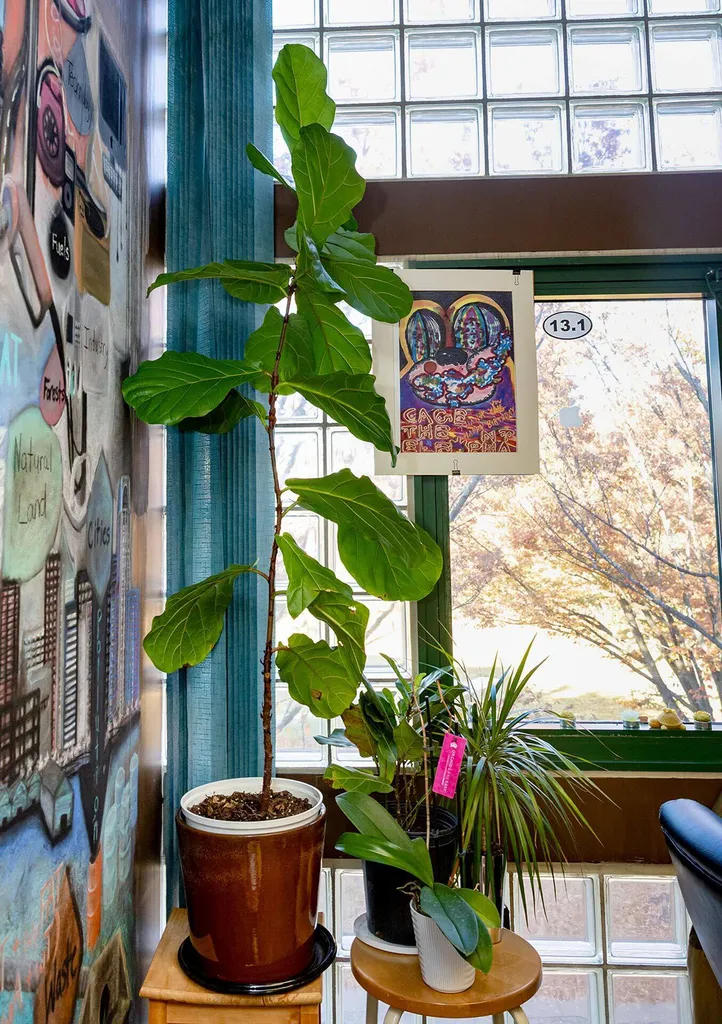
Cage the Elephant
The poster is from one of his favorite bands, Cage the Elephant. Attending the rock group’s concerts became father-daughter bonding experiences for Tilley and Madeleine ’23, an environmental horticulture major.
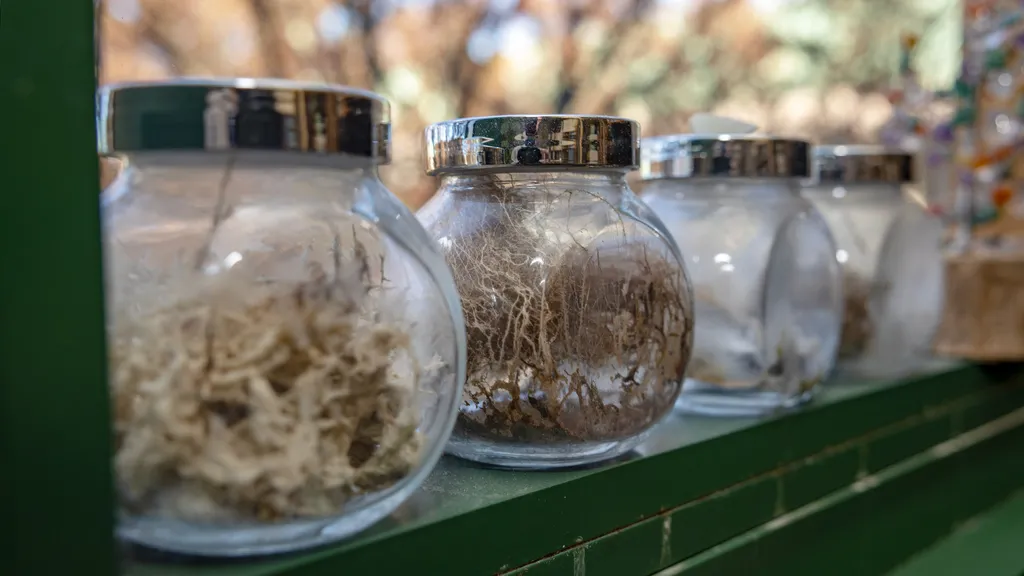
Not-quite terrariums
Tilley would collect bits of moss on his runs, testing them in little jars to see if they could become a self-contained ecosystem. Some survived for years, but the rest died during the pandemic. So why does he keep them around?
“You’ve got to fail to learn!” he said.
